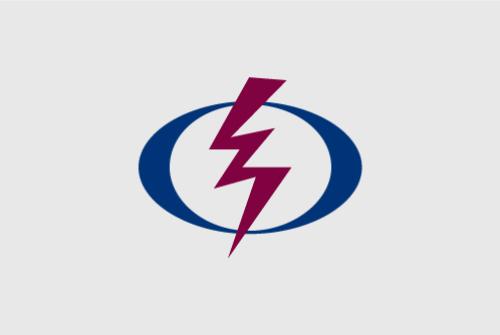Turkey's geographical location and energy import needs, particularly natural gas, make it a key partner for transformation into a trading hub rather than a transit country, said Unal Cevikoz, an energy expert and president of the Ankara Policy Center, a think tank based in the Turkish capital.
Cevikoz, who is also Turkey's former ambassador to Azerbaijan, Iraq and London said in his latest analysis in the Turkish policy quarterly journal, that Turkey is not yet a significant actor that affects global energy strategies, but nonetheless is a key country.
He stressed that both the Turkish Stream to the north and the Eastern Mediterranean natural gas basin to the south have the potential to turn Turkey into a trading hub.
"This role can only be realized if Turkey’s new energy strategy is prioritized in such an essential objective and if the country is prepared for this strategic transformation through determined and intelligent infrastructure investment policies," he said, and added that this approach will also enhance Turkey’s flexibility vis-a-vis global energy strategies.
Turkey is on its way to mending relations with Russia and Israel, which is very important for the energy field, Cevikoz said, adding that "Turkish-Russian relations will, like Turkish-Israeli relations, develop through careful diplomatic effort."
"Incidentally, both normalization processes have one important factor in common, namely Turkey has the potential to enhance its role in the global energy game through the Eastern Mediterranean and through the Black Sea," Cevikoz explained.
He argued that through the normalization process, a new chapter of cooperation between Israel and Turkey may arise in the Eastern Mediterranean.
He also said that Israel's Prime Minister Benjamin Netanyahu is believed to view Turkey as a very convenient route for the export of gas from Israel’s Tamar and Leviathan offshore fields.
Meanwhile, the normalization of Turkish-Russian relations put the Turkish Stream project back on the table following the long-awaited meeting between Putin and Erdogan in St. Petersburg on Aug. 9, 2016.
According to Cevikoz, both Russia and Israel are central to Turkey in its aim to become an energy hub.
The former ambassador said that Russia supplies around 55 percent of Turkey’s domestic gas consumption. Iran supplies approximately 16 percent and Azerbaijan supplies around 13 percent. These three countries are the major suppliers of Turkey’s natural gas imports, with the remainder supplied through LNG imports from Algeria, Nigeria and Qatar.
He contended that those who argue that Turkey needs to diversify its supply lines now feel even stronger because they believe that “relying heavily on one supplier may entail risks” which cannot be neglected.
"Turkey, therefore, should try to explore options for expanding its energy cooperation with Israel," he declared.
He noted that Turkey is located close to more than 75 percent of the world’s proven hydrocarbon reserves, which presents Turkey with a unique opportunity to become a major energy transit country between the East-West and the South-North axes.
"Both Israel and Russia open up new horizons for upgrading Turkey’s role in this region," he said and added, "Notwithstanding the many multifaceted aspects of Turkey’s foreign policy implementation in its immediate neighborhood, energy, may also become a new tool in this new environment. Turkey can assume a more responsible role in East-West energy trade as well as in assuring Europe’s energy security."
- Oil trade around Turkey
He also stressed that Turkey is at the crossroads of oil trade serving as an important transit country due to the Turkish Straits and with major oil pipelines which cross Turkey, namely the Baku-Tbilisi-Ceyhan crude oil pipeline carrying Caspian oil from Azerbaijan, and the Kirkuk-Ceyhan pipeline transporting Iraqi oil.
The full capacity of these two pipelines is 2.8 million barrels oil per day (mb/d) and an additional 2.9 million barrels of crude oil and oil products flowed through the Bosporus and the Dardanelles Straits in 2010.
"The same year, 1.1 million barrels of oil was carried through the two oil pipelines. This total of 4 mb/d and oil products represented around six percent of the daily global oil trade," he said.
"If the existing two pipelines could be used to full capacity, it would allow the transport of some 6 mb/d, which would represent a significant total of around eight to 10 percent of the daily global oil trade," he asserted.
He noted that the finalization of the Southern Gas Corridor is also critical for the EU and Turkey as a hub.
The Southern Gas Corridor is one of the most complex gas value chains ever developed in the world. Stretching over 3,500 kilometers, crossing seven countries and involving more than a dozen major energy companies, it consists of several separate energy projects representing a total investment of approximately $45 billion.
The project includes the South Caucasus Pipeline (SCP), the Baku-Tbilisi-Erzurum natural gas pipeline (BTE), the Trans-Anatolian Natural Gas Pipeline (TANAP), the Turkey-Greece Interconnector (ITG), and the Trans-Adriatic Pipeline (TAP).
Turkey was the fifth largest natural gas importer in the world in 2015 with 48 billion cubic meters (bcm) while Japan ranked first with 117 bcm and Germany second with 73 bcm.
By Murat Temizer
Anadolu Agency
murat.temizer@aa.com.tr





































